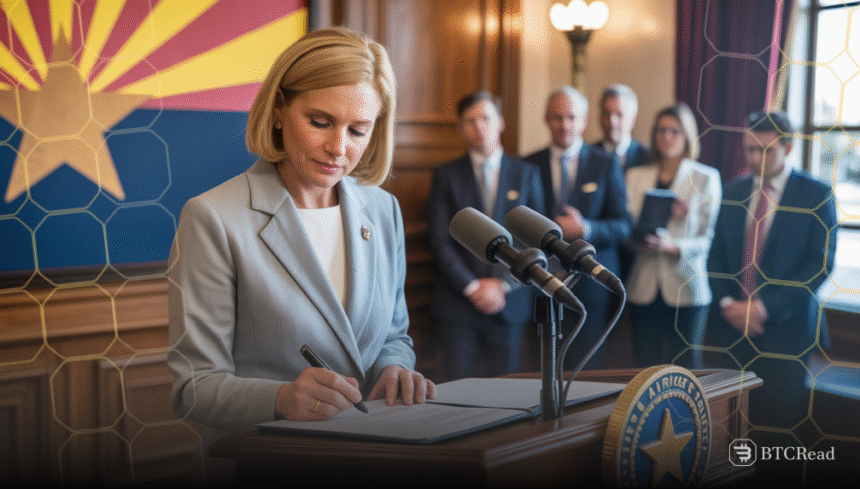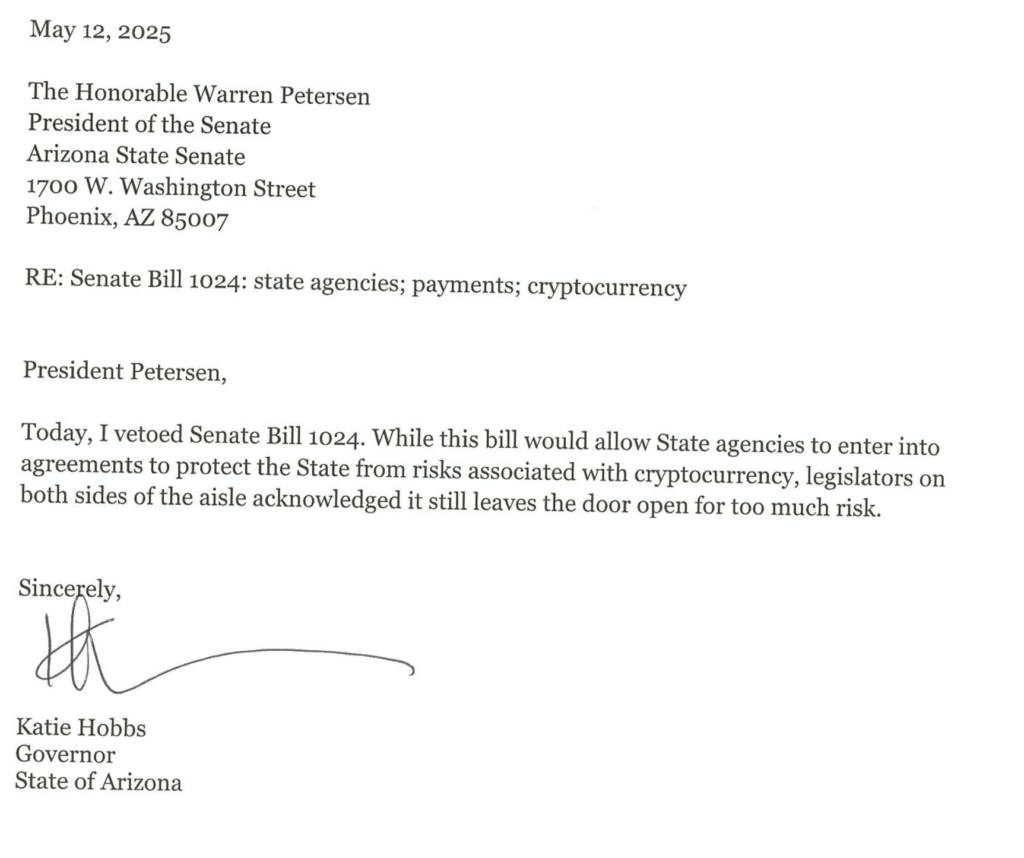Arizona Governor Katie Hobbs has rejected two major crypto-related bills that aimed to boost the state’s role in digital assets. Meanwhile, she signed off on a strict new law regulating Bitcoin ATM.
Hobbs vetoed Senate Bill 1373 on May. 12, which would have created a Digital Assets Strategic Reserve Fund. The fund allows Arizona to hold cryptocurrencies acquired through seizures or legislative funding.
The decision follows Senate Bill 1025, the more ambitious “Arizona Strategic Bitcoin Reserve Act” on May. 3. The bill aimed to let the state invest up to 10% of its treasury and retirement funds in Bitcoin and other digital currencies.
Arizona rejects crypto payment bills
According to bitcoinlaws.io data, 26 U.S. states have proposed strategic crypto reserve bills, with 18 of them still active. Hobbs also rejected Senate Bill 1024, which would have allowed state agencies to accept cryptocurrency payments for taxes, fines, and fees through approved service providers.
Although the proposal aimed to protect the state from direct exposure to price volatility, Hobbs argued that it still brought “too much risk.”
He approved House Bill 2387 on May. 12. The law introduces new consumer protection rules for cryptocurrency kiosk operators to reduce fraud and enhance transparency.
Cryptocurrency kiosk safety bill passed
The bill requires kiosks to display clear, multilingual warnings about common crypto scams and ensures users acknowledge these risks before finalizing transactions. Operators must also provide clear receipts that include transaction details, contact information, fees, and refund policies.
Moreover, the bill limits transactions to $2,000 per day for new customers and $10,500 per day for returning users after 10 days. Kiosk providers must provide 24/7 toll-free customer service and clearly display the number on each machine.
The bill states that if a new user is deceived into sending crypto under false pretenses and provides proof within 30 days, they are entitled to a full refund, including any fees.








